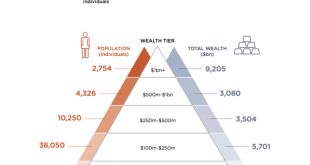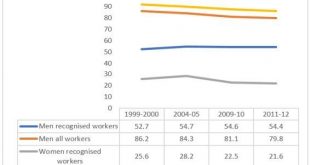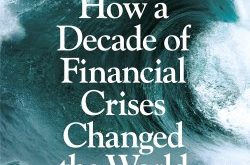This is an extract from an article written for The Times Literary Supplement From TLSThe international and financial dimensions of Keynes’ work are today neglected in favour of the laissez-faire economics that Keynes had so vigorously contested. His profession is dominated by economists concerned overwhelmingly with the activities of individuals, households and firms. Management of the macroeconomy and of financial globalization is left largely to investors and speculators in capital...
Read More »The housing bubble and financial crisis was easy to see coming
from Dean Baker Ten years ago we saw the culmination of a period of ungodly economic mismanagement with the collapse of Lehman Brothers and a full-fledged financial crisis. The folks who led us into this disaster rushed to do triage and tend to the most important problem: saving the bankrupt banks. They also had to cover their tracks. They insisted that the financial crisis was some sort of fluke event — a lot of bad things went wrong simultaneously — and who could have predicted or...
Read More »Hard-won, self-acquired, self-earned property?!
from David Ruccio Almost 30 thousand people joined the ranks of the global super-rich last year, as booming global stock markets and corporate profits boosted the fortunes of the already very-rich and bumped them up into the ultra-high-net-worth bracket. The global population of ultra-high-net-worth people, classed as those with more than $30 million in assets, increased by 12.9 percent last year to a record 255,810 people, while their combined wealth surged by 16.3 percent to $31.5...
Read More »Structural econometrics
from Lars Syll In the ongoing discussion on the ’empirical revolution’ in economics, some econometricians criticise — rightfully — the view that quasi-experiments and RCTs are the (only) true solutions to finding causal parameters. But — the alternative they put forward, structural models, have their own monumental problems. Structural econometrics — essentially going back to the Cowles programme — more or less takes for granted the possibility of a priori postulating relations that...
Read More »Reality, not greenies, the enemy of irrigation expansion
That’s the title of my latest piece in The Guardian, responding to a Matt Canavan spray against critics of a recent CSIRO report canvassing options for expanded irrigation in Northern Australia. Interestingly, although Canavan comes across as a typical North Queensland developmentalist (for whom I would have some sympathy) he’s actually from the South-East corner, a UQ economics graduate and a former senior official of the Productivity Commission. Ten years ago, he’d have been debunking...
Read More »Bernanke, Geithner, and Paulson still don’t have a clue about the housing bubble
from Dean Baker NYT readers were no doubt disturbed to see a column in which former Fed Reserve Board chair Ben Bernanke, Obama Treasury Secretary Timothy Geithner, and Bush Treasury Secretary Henry Paulson patted themselves on the back for their performance in the financial crisis. First, as they acknowledge in the piece, all three completely failed to see the crisis coming. During the years when house prices were getting way out of line with both their long-term trend and rents,...
Read More »What will it take for Trump to remove a tariff ?
If Trump applies a 25% tariff on a $1.00 item the price will go to somewhere from $1.00 to $1.25. At $1.00 domestic producers have have been building all they can to sell at $1.00. In the short run they can not build more capacity so the domestic producer can raise their price to $1.25, or something under $1.25 if the foreign supplier can absorb part of the tariff. In the longer run domestic producers can produce more of the item but their costs will...
Read More »Women’s work in India
from Jayati Ghosh One of the difficulties with discussions on employment in India is the tendency to conflate employment and work. But employment is only that part of work that is remunerated, and in India a vast amount of work is actually unpaid and often not even socially recognised. Once we recognise that, a lot of what appears to be inexplicable about Indian employment trends becomes easier to understand. This is especially true of women’s work. There has been much discussion on the...
Read More »Open thread Sept. 11, 2018
Economic policy — a political matter
from Lars Syll What kind of financial system do we want? What function should it have? What kind of financial activity do we want to permit or even encourage? These are essential questions for the shaping of economic and social policy at a national and global level. If we leave these questions up to the private sector, we expose ourselves to enormous risks. On the basis of our experience of 2008, we know how to master a massive heart attack in the banking system. But we also know how...
Read More » Heterodox
Heterodox






